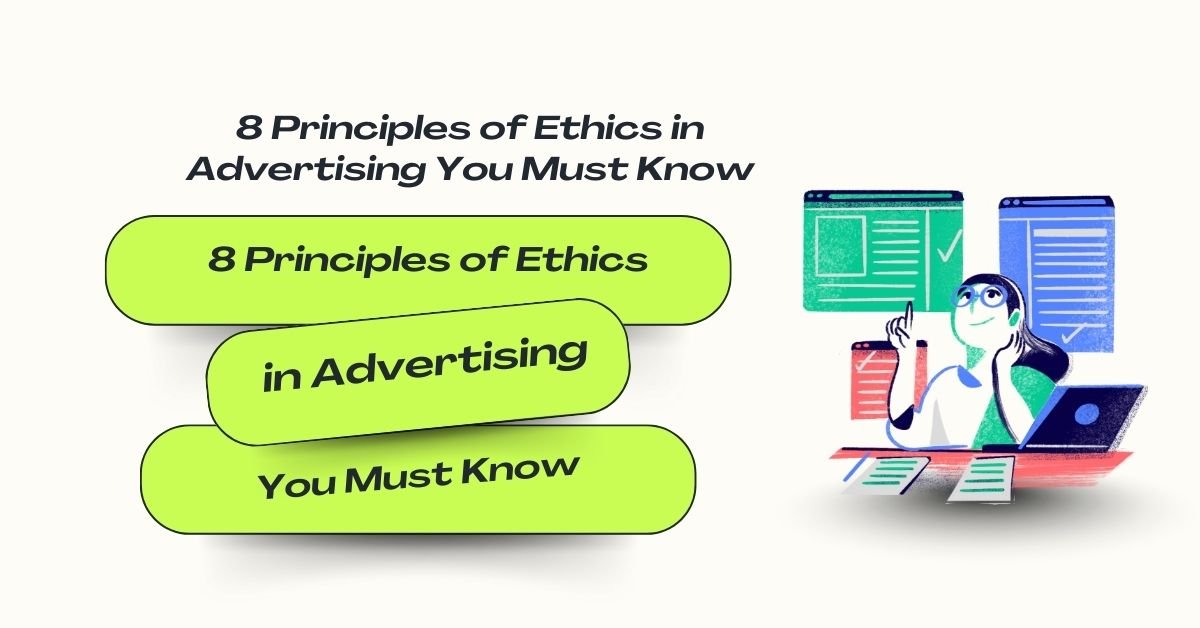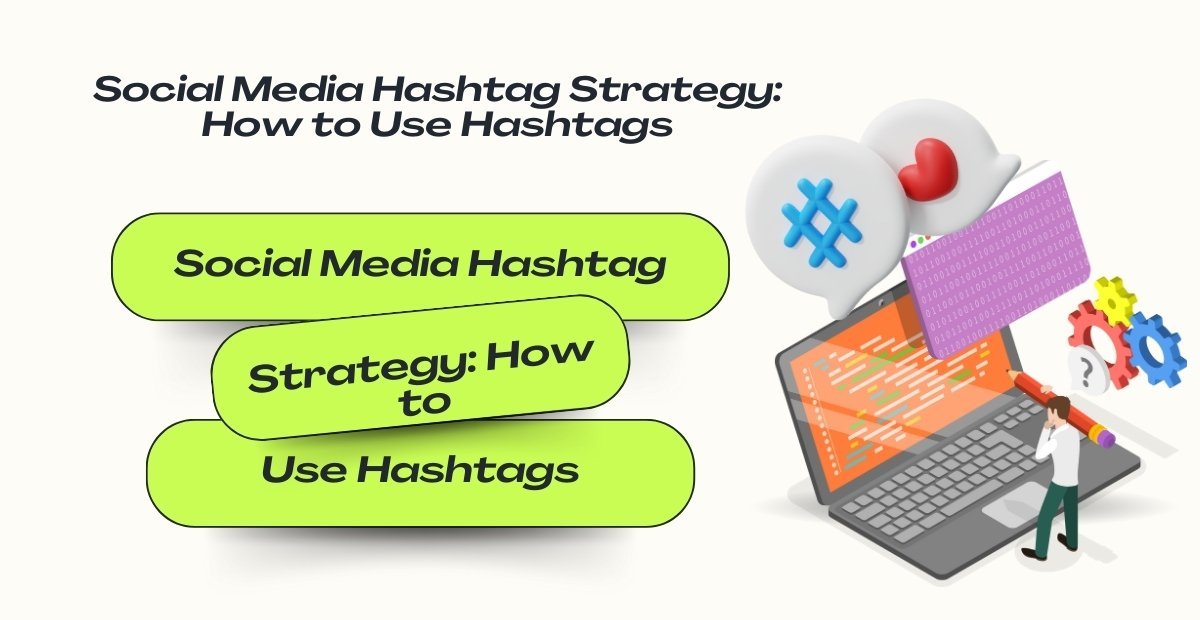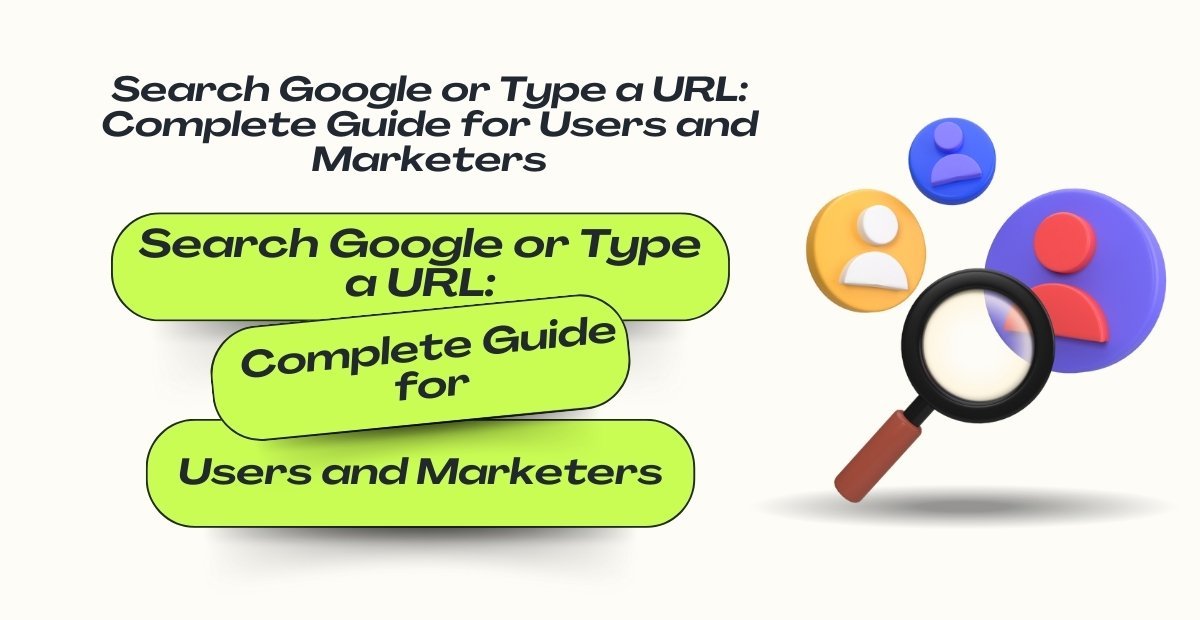
8 Principles of Ethics in Advertising You Must Know
Last updated on September 3rd, 2025 at 07:20 am
Advertising has the power to influence decisions, shape opinions, and build lasting brand images. But with that power comes responsibility. Ethics in Advertising is about ensuring that campaigns are not only creative but also truthful, respectful, and socially responsible. When brands adhere to clear ethical principles, they earn trust, credibility, and long-term loyalty. Let’s explore the eight key principles every business should follow.
- Honesty in Communication: The foundation of Ethics in Advertising lies in honesty. Ads must present facts clearly without twisting or exaggerating them. For example, if a skincare product promises results, it should back them with factual evidence.
- Transparency with Consumers: Being open about intentions and offers is critical. Transparency ensures that hidden charges, unclear terms, or fine print do not misguide audiences. A brand practicing Ethics in Advertising should disclose all details, whether in influencer promotions or discount campaigns, so buyers know exactly what to expect.
- Respect for Cultural Values: Advertising reaches diverse audiences, so respecting cultural, social, and religious sentiments is vital. Respect builds long-term goodwill.
- Responsibility Toward Children and Vulnerable Groups: Children are highly impressionable, making them vulnerable to manipulative ads. Ethical campaigns avoid glamorizing unhealthy foods, violent toys, or unrealistic body images for young viewers. Similarly, Ethics in Advertising ensures fair treatment of vulnerable communities without exploiting them for commercial gain.
- Avoiding False Comparisons: Brands often highlight why their product is better, but comparisons must be fair and accurate. Ethics in Advertising rejects the practice of directly discrediting competitors or using fake comparisons. Healthy competition thrives when brands showcase their strengths rather than belittling others.
- Promoting Social Responsibility: Advertising is not just about selling; it’s about shaping society. A key principle of Ethics in Advertising is promoting positive behavior—whether it’s encouraging sustainability, diversity, or healthy living. Campaigns like eco-friendly packaging or inclusive beauty standards show how brands can inspire change while selling products.
- Protecting Consumer Privacy: In the digital age, user data drives campaigns. But Ethics in Advertising requires brands to respect consumer privacy. Transparent cookie policies and responsible use of personal information create safer digital experiences.
- Delivering on Promises: A campaign is only ethical if the brand delivers what it promises. From product quality to customer service, fulfilling commitments strengthens trust. Ethics in Advertising means aligning marketing claims with real user experience. A restaurant that promotes “30-minute delivery” must consistently meet that expectation.
What Are the Most Common Ethical Issues in Advertising Today?
| Ethical Issue | Explanation | Example |
| Misleading or False Claims | Brands sometimes exaggerate benefits or hide side effects, which damages trust and violates Ethics in Advertising. | A skincare ad promising “instant fairness” with no scientific backing. |
| Stereotyping | Using gender, racial, or cultural stereotypes harms social values and shows poor Ethics in Advertising practices. | Ads portraying women only as homemakers or men as sole decision-makers. |
| Manipulative Emotional Appeal | Overuse of fear, guilt, or false hope manipulates buyers and raises questions on Ethics in Advertising. | Insurance ads that pressure customers by exaggerating fear of accidents. |
| Targeting Children | Marketing products with harmful effects to kids, like junk food, is a major violation of Ethics in Advertising. | Cartoon-based ads luring children into unhealthy eating habits. |
| Invasion of Privacy | Digital ads often misuse personal data without consent, challenging Ethics in Advertising in the online space. | Personalized ads appearing after private conversations or searches. |
| Hidden Sponsorships | Influencers promoting products without disclosure misleads consumers and breaches Ethics in Advertising standards. | Paid brand promotions disguised as personal recommendations. |
The Importance of Ethical Standards in Marketing
- Builds Consumer Trust: Ethical marketing fosters honesty and transparency, which are essential for gaining and maintaining customer trust. Brands that communicate openly are more likely to be perceived as credible and dependable.
Enhances Brand Reputation: Companies that consistently adhere to ethical standards are viewed positively in the public eye. A strong ethical reputation leads to better brand image, word-of-mouth referrals, and long-term customer loyalty. - Supports Long-Term Growth: While unethical practices might deliver short-term results, ethical marketing drives sustainable growth. It creates a stable foundation for relationships, repeat business, and positive brand equity.
- Avoids Legal and Regulatory Issues: Following ethical standards reduces the risk of violating advertising laws or consumer protection guidelines. This minimizes the chance of fines, lawsuits, and public backlash.
- Encourages Responsible Communication: Ethical marketing ensures messages are respectful, inclusive, and truthful. It avoids exploiting emotions, promoting stereotypes, or using misleading data.
- Empowers Internal Culture: A company that promotes ethics externally is more likely to cultivate a values-driven internal culture. Employees take pride in representing a responsible brand and are more motivated to perform.
- Aligns with Consumer Values: Today’s customers are more socially conscious. Ethical marketing helps brands align with consumer expectations regarding sustainability, diversity, and honesty.
- Drives Competitive Advantage: In a crowded market, ethics can be a key differentiator. Consumers are more inclined to choose brands that reflect their values and act responsibly.
Common Ethical Issues in Advertising
- Misleading Claims: Brands sometimes exaggerate product benefits or provide incomplete information, leading consumers to make decisions based on false assumptions.
- Puffery and Overpromising: Using vague, inflated language like “world’s best” without evidence can mislead users and create unrealistic expectations.
- Hidden Terms and Conditions: Small print or unclear disclaimers can mask important information, such as hidden fees or complex terms in offers and promotions.
- Manipulative Emotional Appeals: Some ads exploit fear, guilt, or insecurity to push consumers into purchasing decisions, which is ethically questionable.
- Stereotyping and Bias: Advertising that promotes gender, racial, or cultural stereotypes reinforces negative social perceptions and lacks inclusivity.
- Targeting Vulnerable Audiences: Marketing to children, the elderly, or economically disadvantaged groups with manipulative intent can be ethically harmful.
- False Endorsements: Using fake testimonials, undisclosed paid influencers, or AI-generated endorsements misleads the audience about product credibility.
- Data Privacy Violations: Collecting or using consumer data without consent especially in digital marketing is a growing ethical and legal concern.
- Deceptive Visuals or Edits: Over-editing images or using “before-and-after” visuals that misrepresent real results can mislead consumers.
- Greenwashing: Claiming to be eco-friendly without actual environmental efforts misleads sustainability-conscious consumers.
Legal vs. Ethical Advertising Practices
Legal and ethical advertising practices often overlap, but they are not the same. Legal advertising follows the rules and regulations set by governments or industry authorities.
These laws ensure that ads do not mislead consumers, infringe on copyrights, or make false claims. For example, a skincare product cannot legally claim to “cure” a medical condition without scientific proof and regulatory approval.
On the other hand, ethical advertising goes beyond what the law requires. It considers what is morally right and socially responsible. An ad may be legal but still be unethical if it uses manipulative tactics, promotes harmful stereotypes, or targets vulnerable groups unfairly. Ethical advertisers focus on honesty, respect, and fairness, even when the law doesn’t explicitly demand it.
While legal compliance protects businesses from fines and lawsuits, ethical advertising builds trust and long-term customer loyalty. The best advertising strategies combine both meeting legal standards while also reflecting strong moral values and social awareness.
The Role of Transparency in Advertising
Transparency plays a vital role in creating honest, responsible, and trustworthy advertising. When brands communicate their intentions, pricing, and affiliations, they build stronger relationships with consumers. In contrast, hidden fees, vague promises, or undisclosed sponsorships can quickly erode trust and damage a brand’s reputation.
One key area where transparency matters is influencer marketing. Consumers must know when a social media post is a paid promotion.
Failing to disclose sponsored content not only misleads audiences but also violates advertising regulations in many countries.
Transparency also applies to product claims. Brands should only promote features and benefits that are backed by evidence, avoiding exaggerations that may deceive or confuse buyers.
Clear communication about return policies, subscription renewals, and data usage is equally important. Today’s consumers are more informed and expect honesty from the companies they support. By prioritizing transparency, businesses not only meet ethical standards but also foster loyalty and long-term success in a competitive marketplace.
Case Studies: Ethical Dilemmas in Advertising
Pepsi – Kendall Jenner Ad (2017)
Pepsi faced backlash for trivializing social justice movements by depicting a protest scene where a can of Pepsi seemingly resolved tensions between protesters and police.
Volkswagen – Emissions Scandal (2015)
VW falsely advertised its diesel cars as “clean” and environmentally friendly, while secretly using software to cheat emissions tests.
H&M – “Coolest Monkey” Hoodie (2018)
H&M used an image of a Black child wearing a hoodie with the slogan “Coolest Monkey in the Jungle,” which many considered racially insensitive.
Facebook – Cambridge Analytica (2018)
While not a traditional ad, Facebook allowed unethical targeting of political ads using personal data without user consent.
Fair & Lovely (Now Glow & Lovely)
The brand’s ads promoted fair skin as a benchmark for beauty and success, especially among Indian women.
Nike – Colin Kaepernick Campaign (2018)
Nike’s ad featuring the ex-NFL player sparked controversy due to his protests during the national anthem.
Dove – Body Wash Ad (2017)
A Facebook ad showed a Black woman removing her shirt to reveal a white woman underneath, which many viewers interpreted as racially offensive.
The Impact of Ethics on Brand Reputation
Ethics play a decisive role in shaping a brand’s reputation. When companies consistently act with honesty, fairness, and transparency, they earn the trust and respect of their audience.
Consumers are more likely to support brands that align with their values, whether it’s through responsible advertising, sustainable practices, or fair treatment of employees.
On the other hand, unethical behaviour can damage a brand almost instantly. Misleading ads, hidden fees, or exploiting social issues for profit can lead to public backlash and long-term brand damage. In the digital age, where news spreads quickly, even one unethical campaign can go viral for the wrong reasons.
Brands like Patagonia and Dove have built strong reputations by promoting ethical messages and sticking to their principles. In contrast, companies involved in false advertising or social controversies often struggle to rebuild trust. Moral conduct isn’t just good PR. It’s a competitive advantage that helps brands grow with integrity and customer loyalty.
Strategies for Implementing Ethical Advertising
Implementing ethical advertising starts with a commitment to honesty, responsibility, and respect for the audience. The first step is creating clear advertising guidelines that align with both legal regulations and moral standards.
Marketers must ensure that all claims in advertisements are truthful, verifiable, and not misleading. Using facts instead of exaggerations builds trust and reduces the risk of consumer backlash.
Another critical strategy is knowing your audience. Ethical advertising avoids targeting vulnerable groups, such as children or the elderly, with manipulative or harmful messages. Instead, it focuses on offering value, solving real problems, and responsibly promoting products.
Transparency is also essential. Disclosing sponsorships, paid endorsements, and data usage helps maintain consumer trust. Brands should regularly review their ad content to ensure it remains culturally sensitive and free from harmful stereotypes.
Training teams on ethical marketing practices and encouraging open discussions can help identify potential issues early. Ethical advertising not only strengthens brand reputation but also builds loyal customer relationships grounded in trust and integrity.
The Future of Ethics in Advertising
The future of ethics in advertising will be shaped by growing consumer awareness, stricter regulations, and rapid technological changes. As people become more conscious of social, environmental, and privacy issues, they expect brands to act responsibly and communicate with honesty.
Consumers are no longer just buying products. They’re supporting values. This shift is pushing companies to adopt ethical advertising as a long-term strategy, not just a trend.
With the rise of AI, influencer marketing, and personalized ads, ethical challenges are evolving. Advertisers must now navigate issues like data privacy, algorithmic bias, and deepfake content. Future regulations will likely demand greater transparency in how data is used and how ads are created.
To stay relevant and trusted, brands must build internal systems that prioritize fairness, inclusivity, and truthfulness. Ethical advertising will become a key factor in brand loyalty and market success. In this new era, businesses that lead with ethics will lead the industry forward.
Conclusion
Ethics in Advertising is no longer optional; it is a necessity for building lasting trust. Modern consumers are aware, informed, and quick to question misleading messages. Brands that prioritize honesty and transparency earn loyalty, while those that disregard ethics risk losing credibility. Real-world examples, such as Dove’s “Real Beauty” campaign, prove that positive messaging resonates deeply. At the same time, controversies highlight the damage caused by unethical ads. Ethics ensures fairness, protects vulnerable audiences, and strengthens brand reputation. As markets evolve, only those prioritizing responsible practices will be able to sustain growth and maintain consumer confidence.





Add Comment